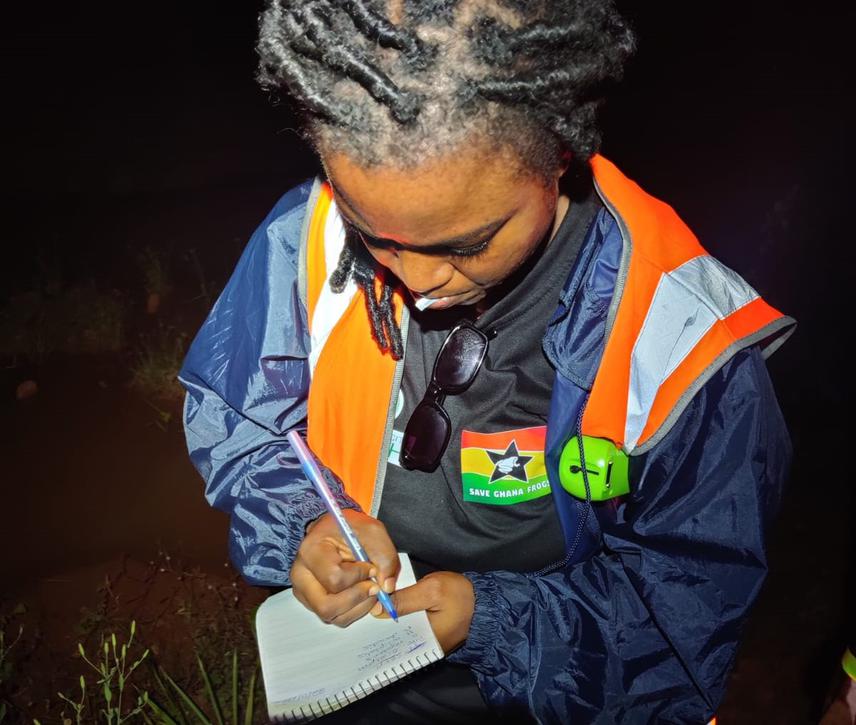Sandra Owusu-Gyamfi
Over 41% of amphibians with assessments in the IUCN Red List are threatened with extinction. This makes them the most vulnerable vertebrate group on earth. Amphibians also have the highest rate of data deficient species. To ensure the survival of these species, it is therefore critical that we increase our understanding of the abundance of amphibian species, and the threats to their survival.

Taking field notes during night survey. © Sandra Owusu-Gyamfi.
Exploitation of wildlife is a major driver of vertebrate population declines yet very few surveys quantify wild meat offtakes, trade or consumption. This lack of exploitation data is even poorest for amphibians. In West Africa where demand for frog meat is on the rise, data available on exploitation only focus on the trade dynamics and market quantities. There are no studies on offtake numbers thus, we have no knowledge of the true harvested quantities from source. Furthermore, there have not been any attempt to study the impacts exploitation is having on hunted species’ populations within West Africa even though it is suspected that some frog species could be going locally extinct from overharvesting.
This project will focus on estimating the presence and relative abundance of frog species under different levels of hunting pressure in Ghana, using field surveys and modelling techniques. Results should help provide data on vulnerable species and identify potential avenues for sustainable management. The project will 1) collect data on hunter ‘Catch Per Unit Effort’ (CPUE) to model population size of exploited frog species; 2) explore the socio-economic drivers influencing frog exploitation; and 3) develop a guiding framework to assist in tracking the population for other hunted amphibians. This project will be implemented in Builsa Municipal, Builsa South and Kassena-Nankana West Assemblies of Ghana’s Upper East Region and will be under the supervision of institutions from Ghana (University of Ghana), UK (University of Oxford) and USA (Stony Brook University).